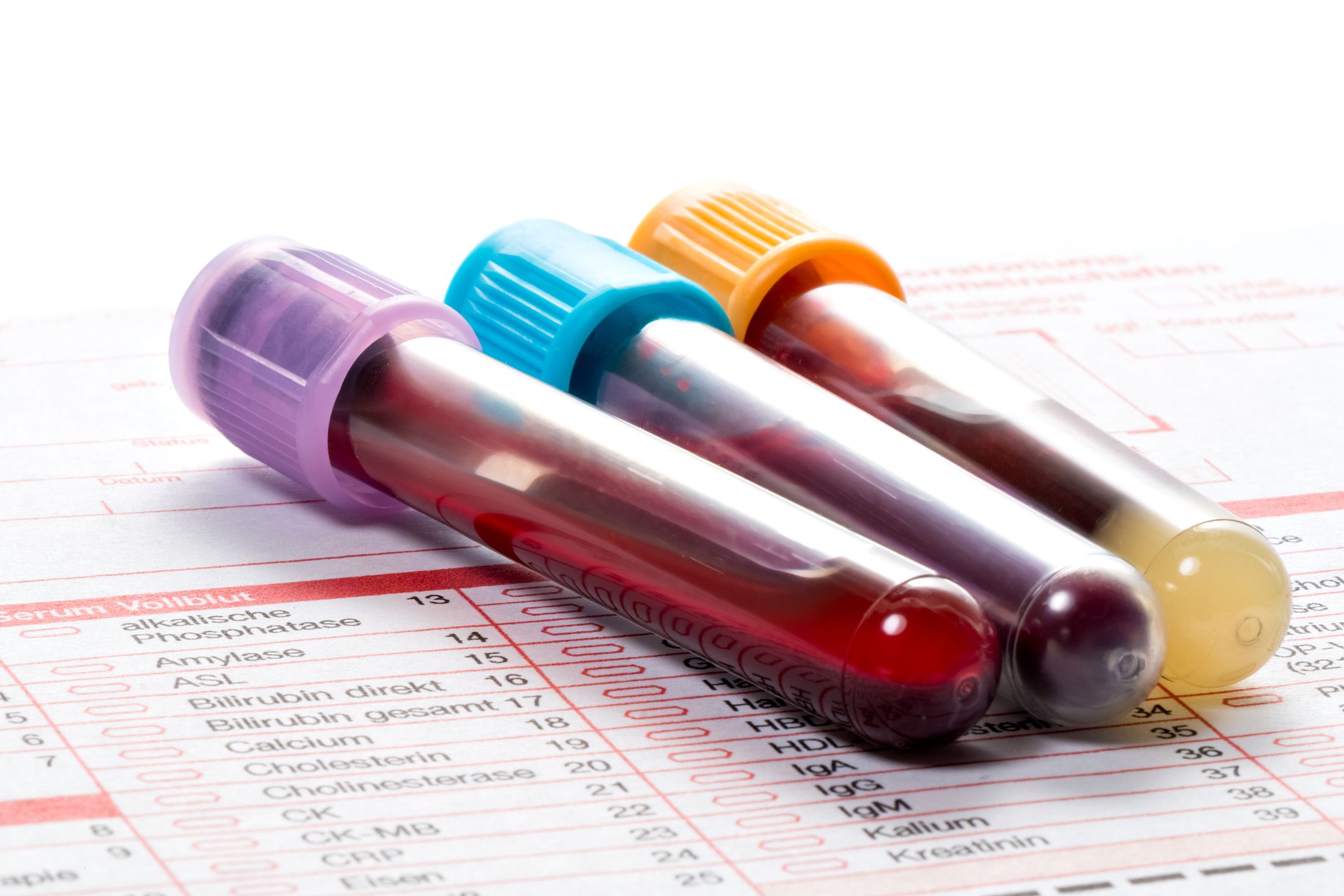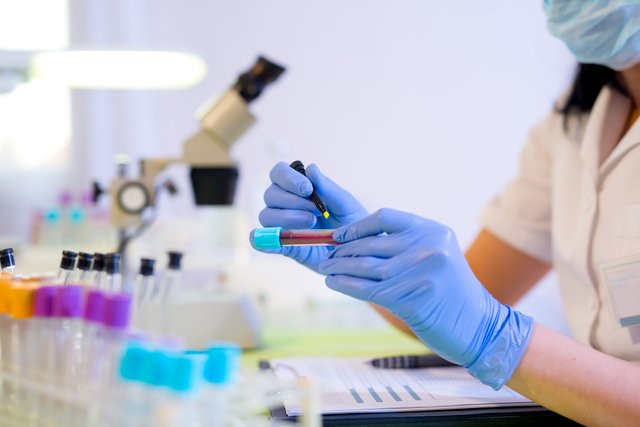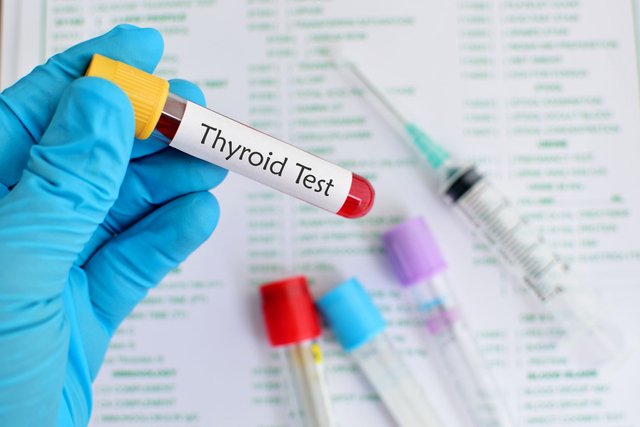New Study Suggests Blood Proteins May Be Useful in Testing for Autism
Introduction
One of the biggest problem with psychiatric and developmental disorders is having some kind of biological method of testing for them.
This is particularly so with developmental conditions like Autism Spectrum Disorder (ASD) because earlier diagnosis can help with management and may improve the outcome and quality of life for the patient and family.
A new open access study by Singh et al [1] from The Journal of Neuroinflammation suggests that two blood tests (TSH and IL-8) in combination could be an accurate diagnostic test.
You can access the study here.
I will keep this brief. If you are interested in the subject please read the paper.
The Study
Methods
The researchers tested the blood of 30 boys with ASD and 30 typical boys (controls) to look for differences in various blood markers.
Overall 11 blood tests were found to differ significantly between the two groups.
The two tests that differed the most were TSH (thyroid stimulating hormone, which was lower in ASD vs controls) and IL-8 (interleukin 8, which was higher in ASD vs controls).
TSH is a pituitary hormone that stimulates the thyroid gland to produce thyroid hormones. It is very important in growth and neurological development.
IL-8 is a substance involved in inflammation - it has a variety of functions which relate to immune function and it has previously been associated with ASD.
Before discussing the most important results we need to have a quick discussion about the issues of sensitivity and specificity:
A Quick Explanation of Sensitivity and Specificity
Sensitivity is how good a test is at detecting a particular disease.
So a sensitivity of 90% would mean that the test could detect 90% of cases.
However this does not tell us about how good the test is at excluding people who don't have the disease i.e. how accurate it is.
Specificity measures how how good the test is at differentiating between those who have the disease and those that don't.
For example a specificity of 50% would mean that only half of the people that get a positive result actually have the disease. That means there is a high rate of false positives.
Obviously having a high sensitivity is important so you don't miss cases but you also need to have a high specificity to so you don't subject people to unnecessary treatment or suffering (particularly in cases where the treatment may be harmful e.g. cancer).
Sensitivity/Specificity for TSH and IL-8 in this Study
Whilst both the TSH and IL-8 in these cases seemed to exhibit a relatively high sensitivity (~94%), the specificities were lower at(55-60%).
However by combining the tests the sensitivity went down slightly to 89% (still a good figure) but more importantly the sensitivity went up to 75%.
This is actually quite impressive for blood testing.
This suggests that a combined test could prove useful in screening children.
Problems
As with most studies of these kinds there are some problems:
Sample Size
One of the primary issues is the common foe of small sample size.
The initial samples involved 30 children each. This was later extended with a few extra cases but still remained small.
Boys Only
Further the sample consisted entirely of boys.
The study gives two different reasons for this.
The first is that previous research has suggested that there are differences in the disease process between girls and boys in ASD. I am not sure how correct that is so will defer to the knowledge of the researchers.
The second reason is probably the more well known one of ASD being more common in boys than girls.
Gold Standard Accuracy?
Another important thing to consider is the assessment of accuracy of diagnosis when it comes to the blood tests.
In order to test sensitivity and specificity one needs to compare them to a gold standard test.
An ideal gold standard test would be one that is perfect i.e. 100% Sensitive and 100% Specific.
I'm sure it won't come as a surprise that such a test does not exist.
In this case the diagnosis was made using a specially trained psychologist using standardised autism testing scales for diagnosis.
Obviously one would assume this is an effective test but it won't be perfect and there will always be some degree of subjectivity involved.
Control Testing/Confirmation
Further I did not see any mention of testing or some kind of confirmation amongst the control subjects - whilst one would assume none of them are suffering ASD we can't be sure unless it is specifically examined.
Obviously this could end up skewing the results if any of the controls do have ASD.
Laboratory Test Methodology and Statistics
Finally it should be noted that I am not a laboratory testing expert or statistician so there may be further problems in these specific parts of the study that I am not aware of.
I would be interested in the opinions of those who have more experience and training in these domains.
Conclusion
Despite its problems this is an interesting study and these two blood tests could be a valuable tool in testing for ASD.
With this in mind the study authors are already planning a larger study to overcome some of the shortcomings here, including the use of female subjects and possibly combining more blood markers.
Blood testing is a lot cheaper and easier than psychological interviews and whilst it is unlikely to replace them for formal diagnosis it could prove to be a useful screening method.
This may help to identify children who are at higher risk of suffering from or indeed developing ASD at an earlier stage.
The end result may be more effective management and treatment which could have significant long term improvements in quality of life for the patients and their families.
It also provides further clues which may be useful in studying the actual causes of ASD.
I look forward to seeing how well follow up studies replicate these results.
(NB. I'm going out to dinner tonight so there may be a while when I am not able to answer comments right away. In that case I will get to them when I can.)
References
- Singh, Sarika, Umar Yazdani, Bharathi Gadad, Sayed Zaman, Linda S. Hynan, Nichole Roatch, Claire Schutte, C. Nathan Marti, Laura Hewitson, and Dwight C. German. 2017. “Serum Thyroid-Stimulating Hormone and Interleukin-8 Levels in Boys with Autism Spectrum Disorder.” Journal of Neuroinflammation 14 (1): 113.

.jpg)



.jpg)







Followed and respect for this awesome article - You can see that you put a lot of work into this post. I am just now doing my doctor thesis and therefore know from first hand how hard it is to make a good, safe and scientifc correct studie.
I have one little favour to ask. Would you mind resteeming this:
https://steemit.com/health/@theaustrianguy/this-website-saves-lifes-the-one-basic-life-support-website-everybody-should-know
It is about one of the best first aid and reanimation sites I have ever seen. If you see my post you will know why I am so urgent about it. Please at least give the post a look. Then you will resteem for sure.
Greets from Austria - and go on with awesome content like this!
Normally I wouldn't but BLS is important. There is a problem the website requires flash so I can't test it out myself. I don't install flash on my browsers anymore.
Thank you sir, I really appreciate that. The money the BLS post earns is gonna go to a rescue organisation - So you even did double good since your reputation surely will give the post much attention!
This post received a 1.4% upvote from @randowhale thanks to @theaustrianguy! For more information, click here!
This post received a 2.4% upvote from @randowhale thanks to @ehiboss! For more information, click here!
Wow...thanks for sharing
I wish you a happy day
Thanks!
Testing drugs has always been a problem. For this reason many animal experiments have been done first.
True but not sure why that is relevant here.
Very interesting! I would like to see more studies on a larger scale done but this is certainly a start in a promising direction. Thanks for posting!
You're welcome.
thanks for sharing who would have thought that blood protein has some use
I have a friend that can"t produce protein and was told he will live not more then 10 years he is now 26 years and the oldest living with this problem in the world . He still eats no protein and is a woulderful friend
Sounds like he had a disorder of producing a specific protein? Am glad he is doing well.
This might not be an accepted and standard test yet but I sure hope the potential for it being a diagnostic tool can be verified soon. A family friend's child got diagnosed at 5/6 years of age. They couldnt accept it at first and were in denial for a bit. This will be of great help if ever. Early diagnosis could mean a lot for both the family and child especially with the adjustments that would have to be made to ensure a better quality of care. Thanks for the post.
Thank you. Yes that is what I think too.
Very interesting,my nephew wasnt diagnosed with ASD until he was 15 years old, when it was clearly obvious something was wrong much earlier.
Yes it does get missed sometimes.
The same with my grandson, not until 1st grade. He is on the higher functioning end of the spectrum though, with Aspergers Syndrome. I am a family doctor and we screen children for ASD at 18 months and 24 months with the MCHAT questionnaire. Of course we're on the lookout at every visit.
Not a science guy but this is surely informative . Resteemed
Thank you!
You are welcome haha